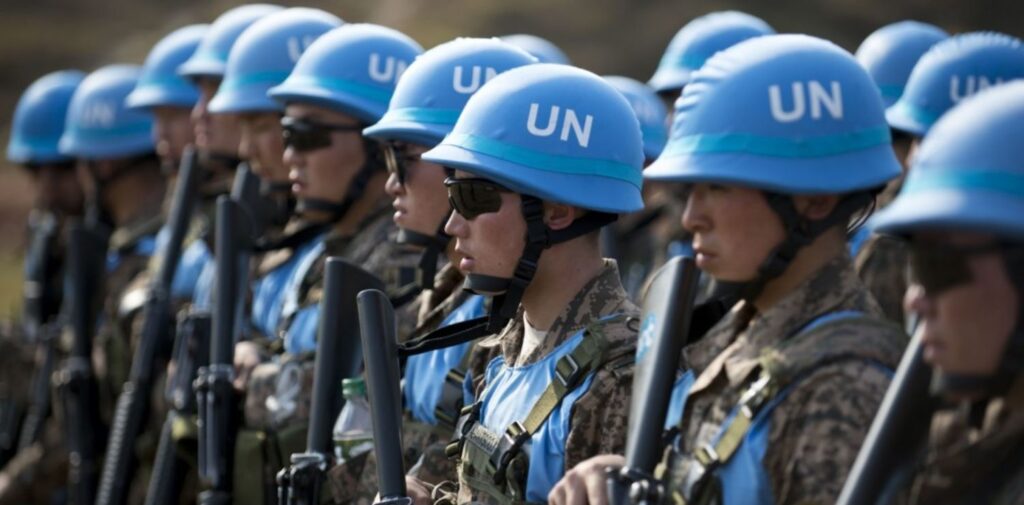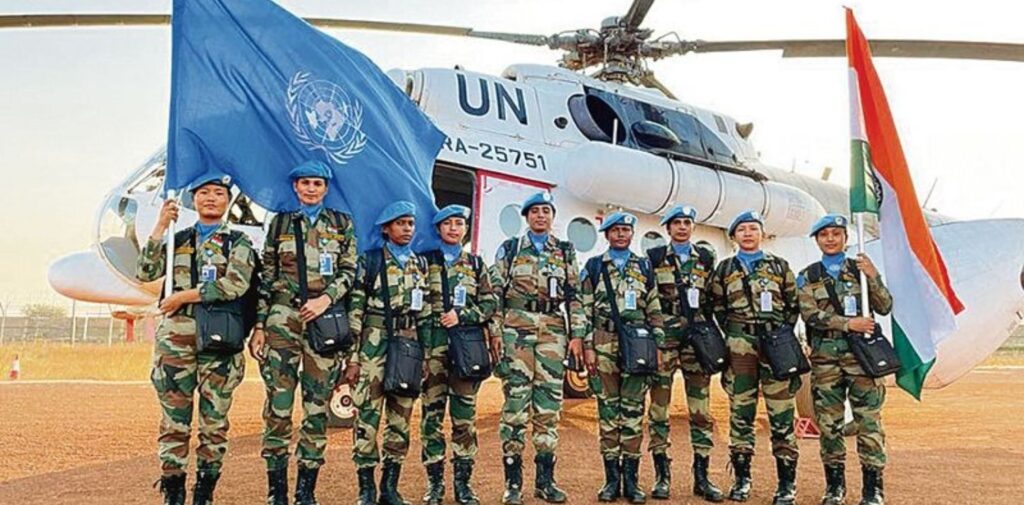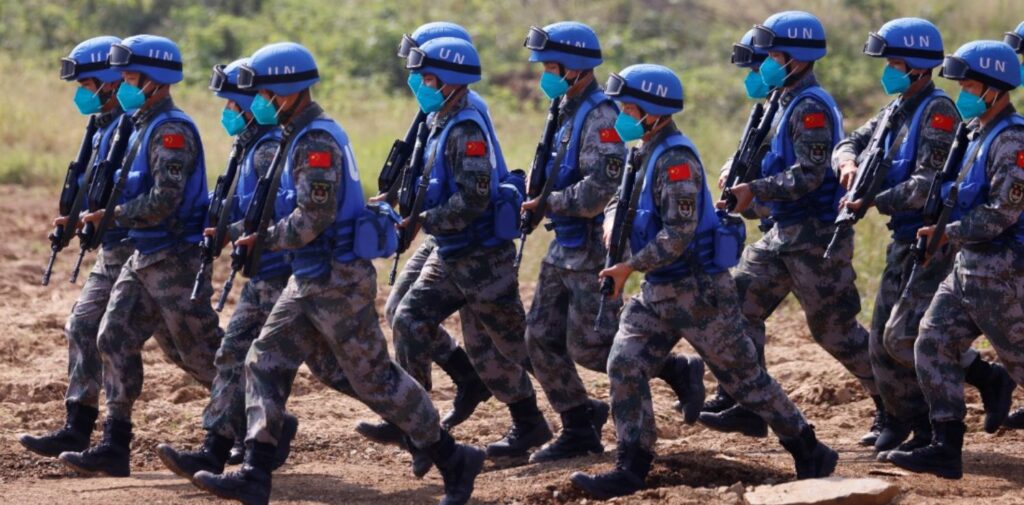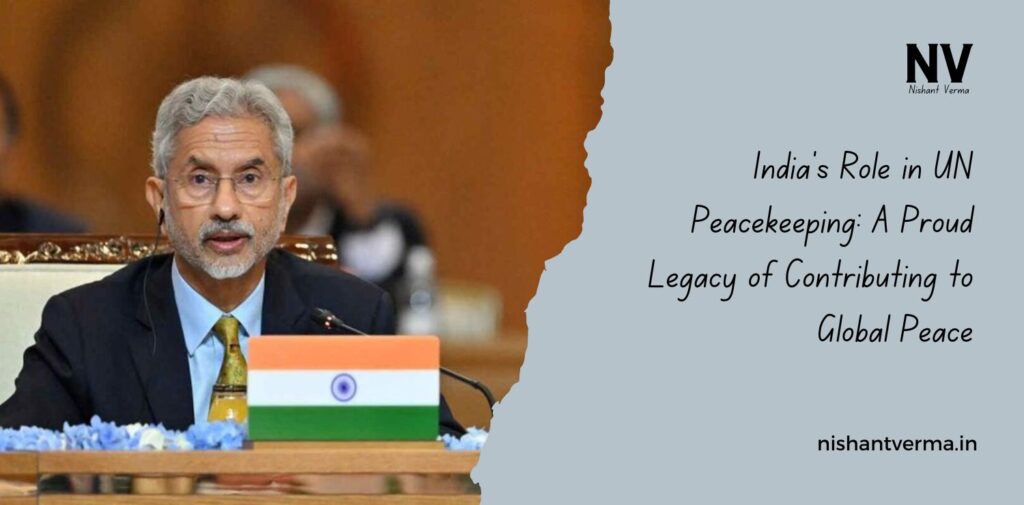India has always been an important player on the world stage, especially when it comes to peacekeeping and supporting global peace efforts. As one of the largest contributors to United Nations (UN) peacekeeping missions, India has a long and proud history of helping maintain peace in conflict zones around the world. This article explores India role in UN peacekeeping, its contributions over the years, and the impact of its efforts in bringing stability to various regions.
What is UN Peacekeeping?
Before diving into India’s role, it is essential to understand what UN peacekeeping is. The United Nations Peacekeeping operations are missions set up by the UN to help maintain peace and security in conflict zones. These missions are made up of troops, police, and civilian personnel from different countries. Their main goals include:
- Preventing conflict: Helping avoid wars and violent disputes between nations or groups.
- Protecting civilians: Safeguarding people from violence and human rights violations.
- Supporting political processes: Assisting in peace talks, elections, and governance reforms.
- Building stability: Helping countries transition from war to peace and rebuilding their societies.
Since the first peacekeeping mission in 1948, the UN has carried out over 70 missions in different parts of the world. India has played a key role in these operations and continues to do so today.

India’s Contribution to UN Peacekeeping
India’s involvement in UN peacekeeping started in the early years of the organization. As a country with a long history of non-violence and a commitment to peace, India became one of the first countries to participate in UN peacekeeping missions.
Early Years: India’s First Deployment
India’s first peacekeeping mission took place in 1950 during the Korean War. The UN Security Council established a peacekeeping force to maintain order in the region, and India sent a battalion of soldiers to help. This mission marked the beginning of India’s long-standing support for UN peacekeeping operations.
Soon after, India became a regular contributor to UN peacekeeping forces. One of the most notable early missions was the UN Emergency Force (UNEF) during the Suez Crisis in 1956. India provided soldiers to help maintain peace in Egypt after a war broke out between Egypt and Israel, Britain, and France. India’s peacekeepers were successful in preventing further escalation and helping restore order in the region.
1960s and 1970s: Expanding India’s Role
In the 1960s and 1970s, India continued to increase its participation in UN peacekeeping missions. Indian peacekeepers were deployed to countries like Congo, Lebanon, and Cyprus.
- Congo: India sent peacekeeping forces to the Democratic Republic of Congo (formerly Zaire) in 1960 to help restore peace after the country gained independence from Belgium. India’s peacekeepers played a vital role in stabilizing the situation and protecting civilians during this turbulent time.
- Lebanon: Indian soldiers also participated in the United Nations Interim Force in Lebanon (UNIFIL) in 1978. The mission was set up to help maintain peace along the border between Lebanon and Israel, and Indian peacekeepers played a critical role in patrolling the area and preventing violence.
- Cyprus: In 1964, Indian forces were deployed to Cyprus as part of the UN Peacekeeping Force in Cyprus (UNFICYP). The island was divided between Greek and Turkish Cypriots, and Indian troops helped keep the peace and monitor the ceasefire.
These missions helped establish India as a reliable and dedicated contributor to peacekeeping efforts worldwide.
1990s and Beyond: Continuing Commitment
India’s commitment to peacekeeping remained strong in the 1990s and continues to this day. Some of the most significant contributions include:
- Bosnia and Herzegovina: In the 1990s, during the breakup of Yugoslavia, India sent peacekeepers to Bosnia and Herzegovina as part of the UN Protection Force (UNPROFOR). Indian troops were tasked with protecting civilians and providing humanitarian aid amid the Bosnian War.
- Somalia: In the early 1990s, India also contributed forces to the United Nations Operation in Somalia (UNOSOM). India’s peacekeepers helped provide security in a country suffering from civil war and famine.
- Sierra Leone: In the late 1990s and early 2000s, India sent a significant number of troops to Sierra Leone as part of the United Nations Mission in Sierra Leone (UNAMSIL). Indian peacekeepers played an essential role in disarming rebel forces, protecting civilians, and rebuilding the country after years of civil war.

Recent Contributions
In the 21st century, India continues to play a leading role in peacekeeping missions. Indian peacekeepers are currently serving in many countries, including South Sudan, Sudan, Mali, and the Democratic Republic of the Congo (DRC).
- South Sudan: India has been part of the United Nations Mission in South Sudan (UNMISS) since its formation in 2011. The mission’s primary goal is to protect civilians and help the young nation build peace and stability after years of conflict.
- Mali: India is also involved in MINUSMA, the United Nations Multidimensional Integrated Stabilization Mission in Mali. Indian peacekeepers are helping stabilize the country, which has faced political unrest and armed conflict.
- Democratic ): India continues to send troops to the MONUSCO mission in the DRC, one of the largest and most complex peacekeeping operations in the world. Indian peacekeepers are involved in protecting civilians and helping with the disarmament process.
India’s Contribution in Numbers
India has made significant contributions to UN peacekeeping both in terms of troops and resources. Here are some key facts:
- Troops: India has contributed over 200,000 soldiers to more than 50 UN peacekeeping missions since 1950. These troops have served in countries across Africa, Asia, the Middle East, and Latin America.
- Casualties: Tragically, India has also lost many of its peacekeepers while serving in conflict zones. As of 2021, India has lost more than 160 peacekeepers in various missions. These sacrifices reflect India’s deep commitment to promoting peace and protecting civilians in dangerous situations.
Why India Plays Such an Important Role
India’s role in UN peacekeeping is not just about the number of troops it sends. There are several reasons why India is a leading contributor to global peace:
- Commitment to Peace: India has always believed in the power of dialogue and diplomacy to resolve conflicts. The country’s foreign policy emphasizes non-violence and peaceful coexistence. This makes India a natural participant in peacekeeping efforts.
- Experience in Conflict Zones: India has experience in managing conflict situations both domestically and in neighbouring regions. India’s involvement in peacekeeping missions benefits from its understanding of complex geopolitical issues, making Indian peacekeepers skilled at managing difficult situations.
- Military Excellence: India has one of the largest and most professional armies in the world. The Indian military is known for its discipline, training, and commitment to peace. Indian peacekeepers are highly regarded for their professionalism and bravery in difficult environments.
- Global Responsibility: As a rising global power, India feels a responsibility to contribute to the international community’s efforts to maintain peace and security. India’s role in peacekeeping strengthens its standing on the global stage and aligns with its foreign policy goals.

Challenges in Peacekeeping
While India’s contributions to UN peacekeeping have been significant, these missions are not without challenges. Some of the main issues include:
- Security Risks: Peacekeepers often work in hostile environments, facing threats from armed groups, local militias, and other violent actors. Indian peacekeepers have lost their lives in several missions due to these risks.
- Complex Mandates: UN peacekeeping missions often have complex and unclear mandates, making it difficult for peacekeepers to accomplish their goals. In some cases, the missions lack enough resources or support from member countries, which can make the task of maintaining peace more difficult.
- Political and Logistical Challenges: Peacekeeping missions often take place in countries with unstable governments, making coordination and communication challenging. Moreover, logistical issues such as transportation, supply chains, and medical support can hinder the success of the mission.
Conclusion: India Role in UN Peacekeeping
India’s role in UN peacekeeping has been a proud legacy of contributing to global peace and security. Over the decades, India has made significant contributions, both in terms of troops and resources, to numerous peacekeeping missions around the world. Its commitment to peace, professionalism, and willingness to make sacrifices has earned India global recognition as a key player in international peacekeeping efforts.
India’s peacekeeping efforts have not only helped to stabilize conflict zones but have also reflected the country’s values of non-violence, diplomacy, and cooperation in promoting global peace. Despite facing numerous challenges, India remains steadfast in its commitment to ensuring a safer, more peaceful world for future generations.




